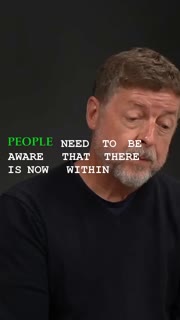Understanding Apostles, Prophets, and Prayer in NAR
Devotional
Sermon Summary
Bible Study Guide
Sermon Clips
1. "And really, in addition to believing that she would be raised. There was the belief that by participating in the prayers of declaration and praying in this way with this expectation, that would enable its occurrence, that would actually foster and increase the chances that this would happen. This is one of the problems with the view is its doctrine of prayer and how our prayers by sort of growing and congealing around a common concern worldwide. Somehow get answered more effectively than otherwise." [15:37] (40 seconds)
2. "And I think it's especially tragic when something as painful as that happens. And then it's in the context of expecting something that God is just going to do. And then he doesn't come through. He doesn't do it. You have to explain this. And this is another thing that's striking about this case is everything just went silent. There are no explanations. We don't hear from Bill Johnson or Chris Vallotton at Bethel Church explaining how they could possibly be mistaken about this. And so I think it's a case of pastoral malpractice." [18:17] (39 seconds)
3. "We think that what NAR folk have done is they've invested the concept of prayer, which should be a biblical concept of petition, with different meaning that you can actually associate with other religious traditions where you're invoking God's power. And you're using it as a kind of lever to make things happen in the world as if you're harnessing divine power. And so the equivocation is in the change up in the use of the term in what you call prayer. You presume to be a shared context of understanding. But because the language is the same, that's no guarantee that the context of understanding really is the same." [25:23] (42 seconds)
4. "Let's just talk about prayer for a moment again. Think about that. If the Bible gives us models of prayer, examples of prayer, the model prayer that Jesus gave his disciples and so forth, and declaration prayer is not part of the biblical concept of prayer, but it is the dominant way that they pray in this movement, then people are effectively, Christian people, effectively living a prayerless life. They are missing out on the true experience of prayer as intended by God, designed by God, and illustrated throughout the Scriptures by adopting a concept of prayer and a form of prayer that's completely foreign to Scripture." [33:28] (46 seconds)
5. "I think faith is when we can ask God for things knowing that he wants to give us our desires. But he wants them to be good for us at the same time. And that's all things considered. And we don't know what that is. So the reason why we pray and submit to his will is that we know he knows better than we do. We can't pray consistent with every perfect thing that God in his wisdom knows. And so that's why the prayer of faith should be one of submitting to the outcome of his will." [34:16] (37 seconds)
6. "People need to be aware that there is now within the church. A sector of teachers saying that a New Testament prophet or someone with the gift of prophecy today or we're talking about people who purport to have the office of a prophet. They can make mistakes. They can get things wrong. That they can receive what they believe is revelation from God. Present it without qualification. This is what's going to happen and then be wrong. And it doesn't disqualify them as prophets if they are wrong. Now we think that's mistaken. We think that's false as itself in itself as a teaching." [52:06] (39 seconds)
7. "It seems to me then you can never act confidently on the advice the counsel the direction that you're receiving. From a fallible profit. I think about the you know you go back to what are your concerns about this movement. We've listed quite a few that I think are pretty substantial concerns. But here's one basic concern is it induces anxiety. It it creates a kind of legalism even within your experience of Christianity. You don't think so because you think no we're experiencing a spirit and that's liberating. Right. We're experiencing Christian living at the most liberal level because it's the spirit of God that we're interacting with." [56:35] (94 seconds)
8. "And they compare that with other churches. That in contrast they look dead. They look like there's no life. There's no spirit there. And we can't be the judge of that. And so what happens is you get a false impression or conception of what a church alive in the spirit really looks like. And I think the measure should be the realization, the production of the fruit of the spirit. Love, joy, peace, patience. And some of these little country churches where they just don't have, you know, the professionalism and the spark and all that. And you might go in there and say, boy, that spirit can't be working there." [57:50] (42 seconds)
9. "They are, in effect, choreographing declaration prayers in churches across America. It's a gauge of the quality of faith that you have. Right. And this is, I think, a reason why in the praying, for example. There's such a reluctance to say, not my will, but thine be done. Who was I quoting there just now? I think it was Jesus. But anyway, there's a reluctance to pray that way because that looks like a lack of faith. And that lack of faith can mean then that your prayer is diffused of power. It just it doesn't have the power that it would have if you prayed with the declaration that it will have." [01:03:49] (60 seconds)
10. "I would say always go to the Scriptures and hold your preachers accountable to the Scriptures. Make them show you from Scripture what it is that's true. It supports what they're teaching you. And learn to read and study the Bible for yourself so that you can get that nutrition on your own. And don't depend on what others claim to know for everything you believe. That's another important point. I would say that when you're singing or when you're praying, either one, ask yourself these few questions. Number one, what does this mean? These words mean what exactly?" [01:14:25] (41 seconds)
Ask a question about this sermon
2. "And I think it's especially tragic when something as painful as that happens. And then it's in the context of expecting something that God is just going to do. And then he doesn't come through. He doesn't do it. You have to explain this. And this is another thing that's striking about this case is everything just went silent. There are no explanations. We don't hear from Bill Johnson or Chris Vallotton at Bethel Church explaining how they could possibly be mistaken about this. And so I think it's a case of pastoral malpractice." [18:17] (39 seconds)
3. "We think that what NAR folk have done is they've invested the concept of prayer, which should be a biblical concept of petition, with different meaning that you can actually associate with other religious traditions where you're invoking God's power. And you're using it as a kind of lever to make things happen in the world as if you're harnessing divine power. And so the equivocation is in the change up in the use of the term in what you call prayer. You presume to be a shared context of understanding. But because the language is the same, that's no guarantee that the context of understanding really is the same." [25:23] (42 seconds)
4. "Let's just talk about prayer for a moment again. Think about that. If the Bible gives us models of prayer, examples of prayer, the model prayer that Jesus gave his disciples and so forth, and declaration prayer is not part of the biblical concept of prayer, but it is the dominant way that they pray in this movement, then people are effectively, Christian people, effectively living a prayerless life. They are missing out on the true experience of prayer as intended by God, designed by God, and illustrated throughout the Scriptures by adopting a concept of prayer and a form of prayer that's completely foreign to Scripture." [33:28] (46 seconds)
5. "I think faith is when we can ask God for things knowing that he wants to give us our desires. But he wants them to be good for us at the same time. And that's all things considered. And we don't know what that is. So the reason why we pray and submit to his will is that we know he knows better than we do. We can't pray consistent with every perfect thing that God in his wisdom knows. And so that's why the prayer of faith should be one of submitting to the outcome of his will." [34:16] (37 seconds)
6. "People need to be aware that there is now within the church. A sector of teachers saying that a New Testament prophet or someone with the gift of prophecy today or we're talking about people who purport to have the office of a prophet. They can make mistakes. They can get things wrong. That they can receive what they believe is revelation from God. Present it without qualification. This is what's going to happen and then be wrong. And it doesn't disqualify them as prophets if they are wrong. Now we think that's mistaken. We think that's false as itself in itself as a teaching." [52:06] (39 seconds)
7. "It seems to me then you can never act confidently on the advice the counsel the direction that you're receiving. From a fallible profit. I think about the you know you go back to what are your concerns about this movement. We've listed quite a few that I think are pretty substantial concerns. But here's one basic concern is it induces anxiety. It it creates a kind of legalism even within your experience of Christianity. You don't think so because you think no we're experiencing a spirit and that's liberating. Right. We're experiencing Christian living at the most liberal level because it's the spirit of God that we're interacting with." [56:35] (94 seconds)
8. "And they compare that with other churches. That in contrast they look dead. They look like there's no life. There's no spirit there. And we can't be the judge of that. And so what happens is you get a false impression or conception of what a church alive in the spirit really looks like. And I think the measure should be the realization, the production of the fruit of the spirit. Love, joy, peace, patience. And some of these little country churches where they just don't have, you know, the professionalism and the spark and all that. And you might go in there and say, boy, that spirit can't be working there." [57:50] (42 seconds)
9. "They are, in effect, choreographing declaration prayers in churches across America. It's a gauge of the quality of faith that you have. Right. And this is, I think, a reason why in the praying, for example. There's such a reluctance to say, not my will, but thine be done. Who was I quoting there just now? I think it was Jesus. But anyway, there's a reluctance to pray that way because that looks like a lack of faith. And that lack of faith can mean then that your prayer is diffused of power. It just it doesn't have the power that it would have if you prayed with the declaration that it will have." [01:03:49] (60 seconds)
10. "I would say always go to the Scriptures and hold your preachers accountable to the Scriptures. Make them show you from Scripture what it is that's true. It supports what they're teaching you. And learn to read and study the Bible for yourself so that you can get that nutrition on your own. And don't depend on what others claim to know for everything you believe. That's another important point. I would say that when you're singing or when you're praying, either one, ask yourself these few questions. Number one, what does this mean? These words mean what exactly?" [01:14:25] (41 seconds)










